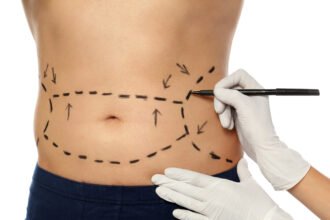Today the world has become so fast that, squeezed between all the tasks at hand, we don?t have time to work on ourselves. Probably most neglected aspect is the care of our bodies. Physical exercise is an important factor for our health, but today it also has an important role in our image. That creates an even bigger pressure, as we look at people who work out every day like they are born for it. At the same time, sometimes we just feel we can?t get off our couch. Does that mean we?re not born for it? Can motivation to exercise depend on genetics? Some research suggests that emotional response to the workout can hide in our genes.
Pride and prejudice
The most common factor that boosts our motivation is the pride of our accomplishment. On the other hand, there?s disappointment. If you have a motivational problem, you should carefully monitor your feelings during and after the exercise. If you enjoy the exercise and consider it to be a pleasurable thing, it?s more likely that you?ll find the time to continue no matter how big your obligations are. But if there?s no accomplishment your motivation will tend to increase. It sounds pretty simple, but actually, this depends on the number of mature neurons in the nucleus accumbens which is the part of the brain responsible for reward processing. Basically, if you don?t have enough mature neurons in this part of the brain, you might not be able to feel the accomplishment. On the other hand, another important aspect is the reason why you started to workout in the first place. Did you engage voluntary, or are you pushed into it by demands of modern society? If you enter the exercise with prejudice, your mind won?t allow you to get results.
Like father, like son
Sometimes one one look at your parents is enough to think there?s just no point in exercising. If your father is a short man carrying the beer-belly around there?s not a chance you could turn into an athlete. In order to put that theory to a test, scientists conducted a series of experiments on lab rats. They?ve interbred rats in order to create two very distinct groups – those who love to run and those who don’t. They noticed that family members, particularly twins, tend to exercise as their parents or siblings do, even if they didn?t grow up together. So they decide to compare their bodies, brains, and DNA.
- Brains
Rats that were ill or simply overweight, who had a poor muscle quality or any other physiological obstruction we?re not interested in running. That was a pretty obvious conclusion – if you?re couch-potato, you stay on the couch.
- Bodies
After ten generations of rats they produced, scientists expected to find substantially different builds between the runners and the lazy ones. But except the fact that lazy rats were slightly heavier, they found none.
- DNA
While comparing the activity of thousand genes in the nucleus accumbens we mentioned above, they found that many genes differ between two groups. Although this sounds interesting, it?s not yet proven whether the same genes are involved in people.
Under the microscope
After the animal experiments like that one with the rats in the section above, scientist continued to monitor human behavior concentrated on genes. While nothing is completely proven yet, there are interesting cases where we can see that genes maybe do have something with motivation after all.
- Transmission halt
When you exercise, you boost levels of a neurotransmitter called dopamine into the brain which, among other things, improves your mood and stimulates pleasurable feelings. Studies have shown that there are people who can?t get this sensation of pleasure because some of their genes interfere with the release of dopamine.
- Twins
In 2006 the research was conducted between identical and fraternal twins. The answers were still partial – they only showed that the motivation to exercise is more similar regarding identical ones, due to the completely same genetic makeup.
- Pain & Pleasure
In 2007 the scientist focused on the BDNF gene that influences the growth of new brain cells as well as skeletal muscles through the nervous system. They discovered that it has a lot to do with voluntary movement and that his presence (or the lack of it) can influence our motivation to exercise. The form of this gene inside us dictates the type of mood we?re in during or after the exercise. Nevertheless, it?s hard to separate this from a typical psychological barrier.
No excuses – the conclusion
 After various research, all the scientists agreed in one thing – genetic profiles will never be destiny. Their discoveries are not meant to be an excuse to stay on the couch, even it?s in your nature to do so. You can always change your nature. For example, what you wear during the exercise can have a great impact on how you feel during the workout. Experts from Metas Athletic can help you dress for the part. Then invest in some good quality exercise equipment and make the world your playground.
After various research, all the scientists agreed in one thing – genetic profiles will never be destiny. Their discoveries are not meant to be an excuse to stay on the couch, even it?s in your nature to do so. You can always change your nature. For example, what you wear during the exercise can have a great impact on how you feel during the workout. Experts from Metas Athletic can help you dress for the part. Then invest in some good quality exercise equipment and make the world your playground.









